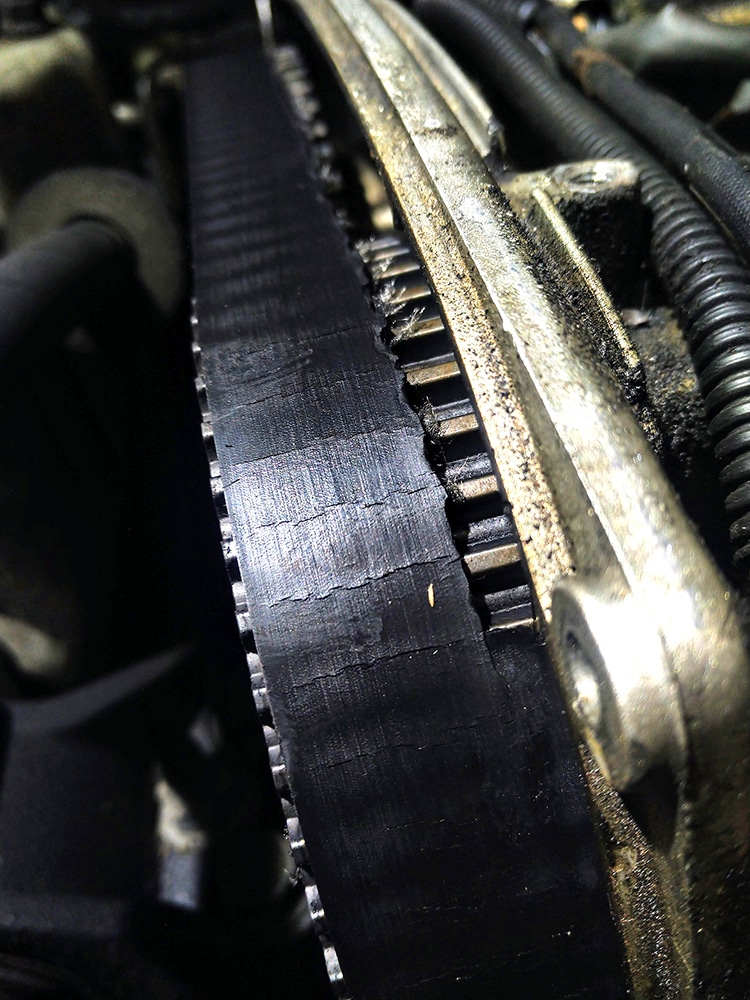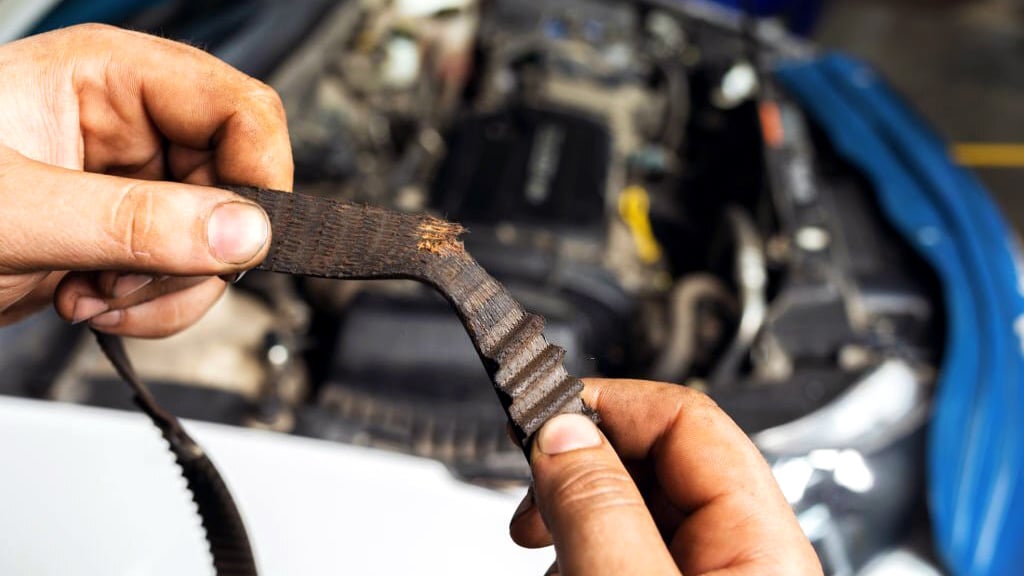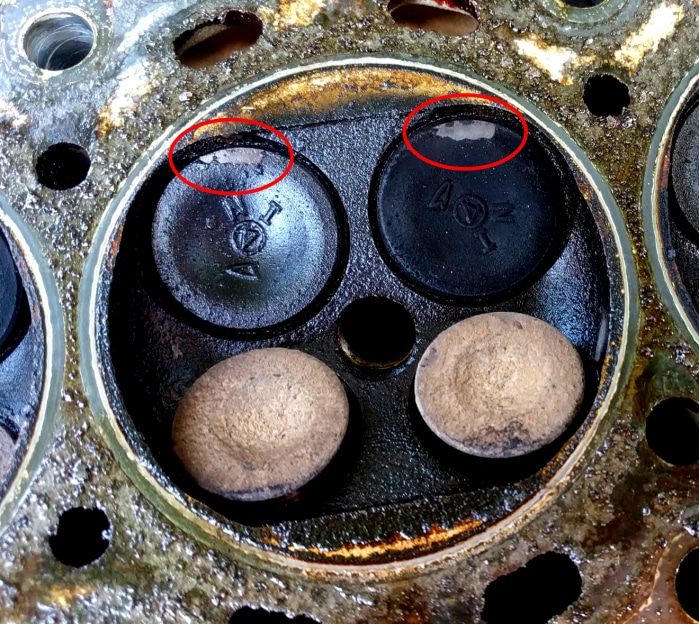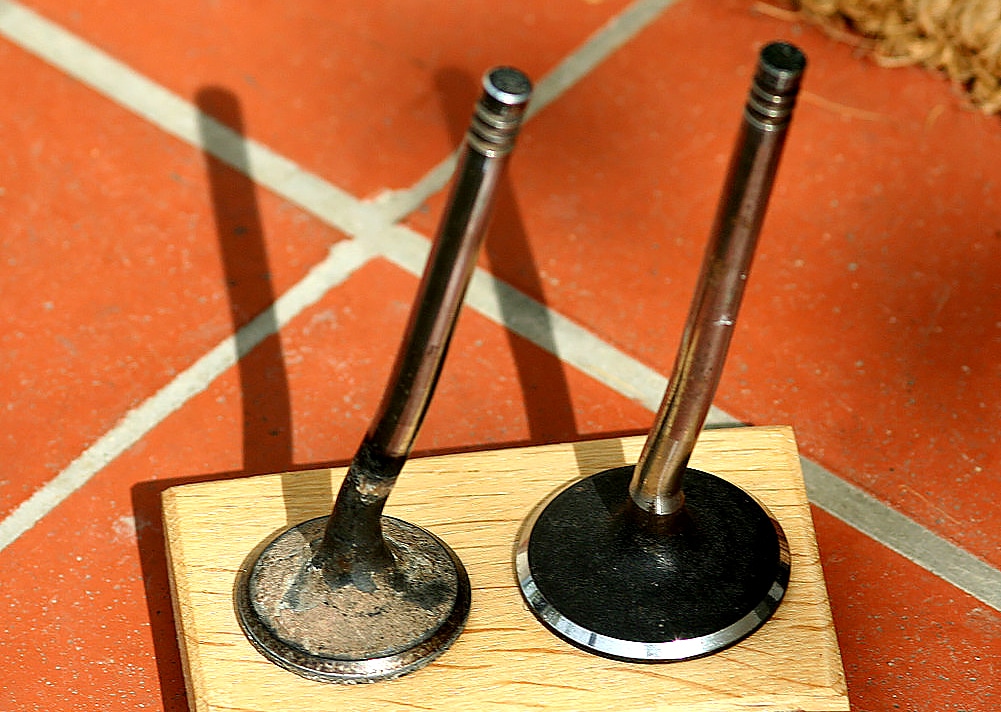Timing chains and belts rarely come across as a thing of significance to the average car owner.
But if you’re mechanically inclined, chances are that you’ve heard the characteristic squealing or chirping noise and associated it with timing belt issues.
With that in mind, you probably know what a bad timing belt sounds like. But do you know what happens when a timing belt breaks?
It is such an important engine component that if it ever decides to go out, you’re likely to spend a small fortune on engine repairs and labor costs.
Potential damage can range from minor to catastrophic, depending on the engine type and extent of failure.
If your local dealer or technician ever says anything about servicing/replacing the timing belt, pay close attention because it’s not something you’d want to gloss over.
In this article we’ll discuss timing belt failures and everything you need to know about them.
Timing Belt 101

If you’re someone who understands engines, then this next bit is worth skipping. But if you’re new to engines and don’t know exactly how they work, here’s a brief intro to what timing belts do and their importance.
As you may know, the intake and exhaust valves are responsible for supplying air and fuel to the combustion chamber while also being the exit point for spent exhaust gases.
There’s something called engine timing that decides when the exhaust and intake valves should open and close relative to the piston’s position.
The valves are operated by the camshaft, which is connected to the crankshaft via the timing chain/belt.
It’s important that the camshaft and crankshaft work in perfect harmony — something the timing belt ensures.
When the timing is correct, that is, when the intake and exhaust valves open and close when they’re supposed to, everything works well.
But when it’s not, the motor can run into several problems, especially if it’s an interference engine.
Engines that have pistons overlapping with open valves, or in other words, extending into an area occupied by a fully open valve, are called interference engines.
Alternatively, non-interference engines are not that severely damaged when a timing belt/chain fails. Of course, your engine will seize either way.
It’s just that, versus non-interference designs, interference engines have an increased risk of damaging the internals, owing to the piston-valve overlap.
How to Tell if Your Timing Belt Is Broken?

The most obvious sign is when the engine does not start even after cranking it multiple times. However, this can also be the result of a weak battery, bad spark plugs, or a malfunctioning starter motor.
If you hear a ticking sound in conjunction with an engine misfire, you’re likely looking at a failing timing belt.
Excessive smoke from the exhaust system accompanied by abruptly rising or falling engine RPM can also be attributed to a faulty timing belt. Make sure to have a technician look at the engine because the repair bill won’t be cheap if it’s too late.
What Happens When a Timing Belt Goes Out?

The short answer is that your engine seizes, alongside the massive inconvenience of getting stranded in the middle of the road. But if yours is an interference engine, then your problems can be much worse. These include:
- Bent or broken valves
- Cylinder head damage
- Camshaft damage
- Cylinder wall damage
- Piston damage
If yours is a non-interference engine, your pistons won’t collide with open valves. In which case, a timing belt failure is not something of grave concern, at least in terms of engine damage.

If your timing belt snaps while on the move, the only thing you can do is try to coast as much as possible until you can pull over to the side and call for a tow truck. Understand that the engine is in no position to power the vehicle despite your best efforts.
The reality is that you can’t drive for long or at all with a bad timing belt. But what if your timing belt hasn’t broken yet but is on its way out?

You can continue driving, but that’s a risk, especially if it’s an interference engine. Try not to plan any long trips unless you get it fixed. There’s a good chance you could get stranded if you choose to ignore a failing timing belt.
Will A Broken Timing Belt Destroy Your Engine?
Yes and no. The general consensus is that the most damage caused will be during the exact moment the belt fails. Cranking the engine again will not result in further damage.
As we touched on earlier, interference engines are at serious risk in the event of a timing chain failure. Non-interference engines will experience little to no damage to the internals. So it’s important to understand what engine is inside your car.
But wait, how can you tell if an engine is interference or non-interference? If your engine runs on diesel, then it’s most likely an interference design.
If it’s gasoline, then it’s a mix of both, with some manufacturers preferring a non-interference design over an interference setup. 70% of all vehicles with timing belts have interference engines.
Timing Belt Failure While Driving

When neglected, the timing belt can turn into a real pain in the neck. But its failure is something inevitable, and some day it will happen, especially if your car has seen better days and has over 100k miles on it.
Usually, timing belts need to be changed between 80,000 and 120,000 miles. Timing chains, on the other hand, normally last the lifetime of the car, as long as maintenance and oil changes are performed as per the manufacturer’s instructions.
They won’t necessarily break as often as a belt, but they will, however, wear and stretch, which is to be expected from a moving part.
Always remember that as the owner of an interference-engined vehicle, your enemy is the timing belt. Make sure you get it changed or adjusted per the manufacturer’s recommended time intervals.
It’s relatively inexpensive when compared to the cost of replacing a bent valve or a damaged crankshaft. Prevention is key in this case. Have your vehicle serviced at regular intervals to avoid getting stranded or paying expensive repair bills.
Hopefully we’ve answered all your questions regarding timing belt failure, its symptoms, and possible consequences.
If you enjoyed reading the article, feel free to drop a comment and share it with your friends on Facebook, Reddit, and other online communities. We appreciate your support!

